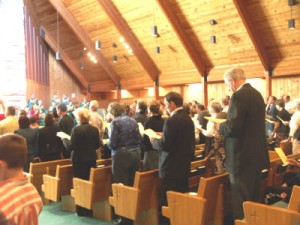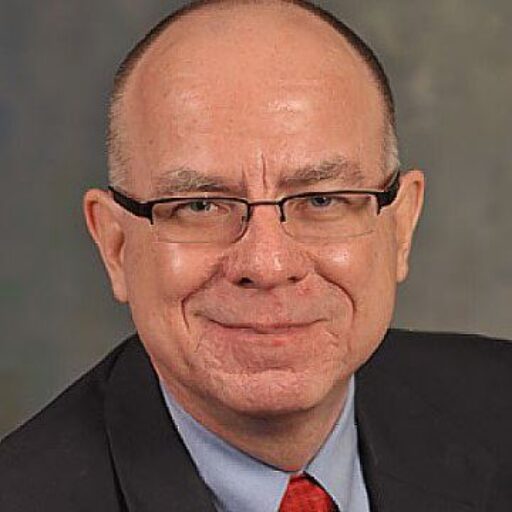 How much of my own personal struggles should I share with counselees?
How much of my own personal struggles should I share with counselees?
I’ve been asked how the concept of “professional distance” relates to sharing with clients how God has worked in our own lives. Some therapists are trained to avoid “inserting their own personalities” into the counseling process by not sharing anything about themselves with counselees. It is possible, though, to strike a balance between over-involvement and being so objective that those we work with never see our “human” side.
A. The benefits of “self-disclosure” in the counseling process – There are many good reasons to share our own spiritual journeys with those we seek to help, especially if we ourselves have overcome an addiction to drugs and alcohol.
- Knowing we’ve done many of the same things can help clients to trust us more. Knowing we’ve struggled with some of the same issues, helps them feel that we are able to understand what they are experiencing in the early days of sobriety. Hearing our stories can convey hope that helps them believe that they, too, can overcome the obstacles they face and find truly satisfying, sober lives.
- Knowing that we struggle currently with a number of issues, too, can also be helpful. Many newly sober people feel so “terminally unique” that somehow their problems are so bad they can’t change. This results in a very discouraging type of shame. So, there’s a lot to be gained when they understand that they are not alone in their struggles and that others (ourselves included) have some of the same feelings and have made the same mistakes, and still end up doing many things we regret.
Thoughtful self-disclosure is an important tool for the Christian counselor. The Bible encourages us to “comfort those in any trouble with the comfort we ourselves have received from God.” (2 Corinthians 1:3 NIV) When we work with wounded people, there’s much to be gained by letting them see us as “fellow travelers” who are walking the road to recovery with them.
B. A few words of caution – The rescue mission long-term residential program creates a somewhat unique counseling environment with some special pitfalls. Not only do people actually live in the facilities where the staff members work, they also remain in the programs for a longer period of time — sometimes a year or more. This can allow us to get to know clients better and to develop more significant relationships with them. On the “plus” side, this is allows us to work with them on a deeper level and can potentially create an environment for some powerful discipling and mentoring. On the other hand, this environment has some unique dangers where a proper understanding of “professional distance” – maintaining proper personal boundaries – is absolutely essential. Here’s a few things to keep in mind:
- It is important to always remember who is “staff” and who is “client” and to keep those roles very separate. And, at the same time, it’s important to remember which of these roles belongs to you. This can be especially tricky for people who have joined the staff after completing the program themselves. Over-identification with the wrong group can cause some real problems; including forgetting who actually “runs the place.”
- In the arena of emotional involvement, the “wall” between staff members and clients must be very definite. One rule that must be in place and enforced rigorously is the prohibition of staff members developing relationships with clients outside of the working environment. This is especially important in regard to those situations where there is an opportunity for romantic involvement. These types of situations always result in problems that run the gamut from favoritism all the way to sexual compromise.
- In light of this, it is absolutely critical that staff members have regular weekly meetings where they can discuss the residents and their needs – and share their own needs and gain support from one another. If workers are not doing this, it’s easy to feel alienated from one another. Some staff members may actually end up leaning inappropriately on the residents for emotional support and companionship while at work. There must be an atmosphere where workers feel the freedom to discuss their own issues with that relate to the residents with whom they work with one another.
- While every resident should have one staff members as their primary counselor/mentor, our work with them ought always to be a team approach. It should be clearly understood by all clients that what is shared with their primary counselor may also be shared with the counseling team members. We benefit from counseling insights provided by other team members. This also prevents clients from forming an exclusive relationship with a staff member who is “the only one I can talk to”
- It is important to avoid sharing too much about your current on-going personal struggles with clients. This could result in them losing respect for you. In light of this, members who are in recovery themselves should never participate in a support group in which their clients are in attendance.
Working with hurting people can be a very rewarding endeavor. We grow in our own faith as we see God work in their lives. But, anyone who works in this field must have their own support network firmly in place in order to avoid these pitfalls

 Over twenty years ago, Rev. Maurice Vanderberg, Executive Director of City Union Mission in Kansas City, hung the purpose of their new Christian Life Program on their chapel wall. It is a statement that should de scribe the intent of all rescue mission re covery programs:
Over twenty years ago, Rev. Maurice Vanderberg, Executive Director of City Union Mission in Kansas City, hung the purpose of their new Christian Life Program on their chapel wall. It is a statement that should de scribe the intent of all rescue mission re covery programs: The Twelve Steps originated with Alcoholics Anonymous in the mid 1930’s. Besides being used to help alcoholics and drug addicts, the Twelve Steps have been used in support groups for family members, over-eaters, compulsive gamblers, and even for those desiring to escape from sexual addiction. These Steps formed the basis of treatment and counseling activities at New Creation Center where I served as Executive Director for ten years in the 1980’s.
The Twelve Steps originated with Alcoholics Anonymous in the mid 1930’s. Besides being used to help alcoholics and drug addicts, the Twelve Steps have been used in support groups for family members, over-eaters, compulsive gamblers, and even for those desiring to escape from sexual addiction. These Steps formed the basis of treatment and counseling activities at New Creation Center where I served as Executive Director for ten years in the 1980’s.

